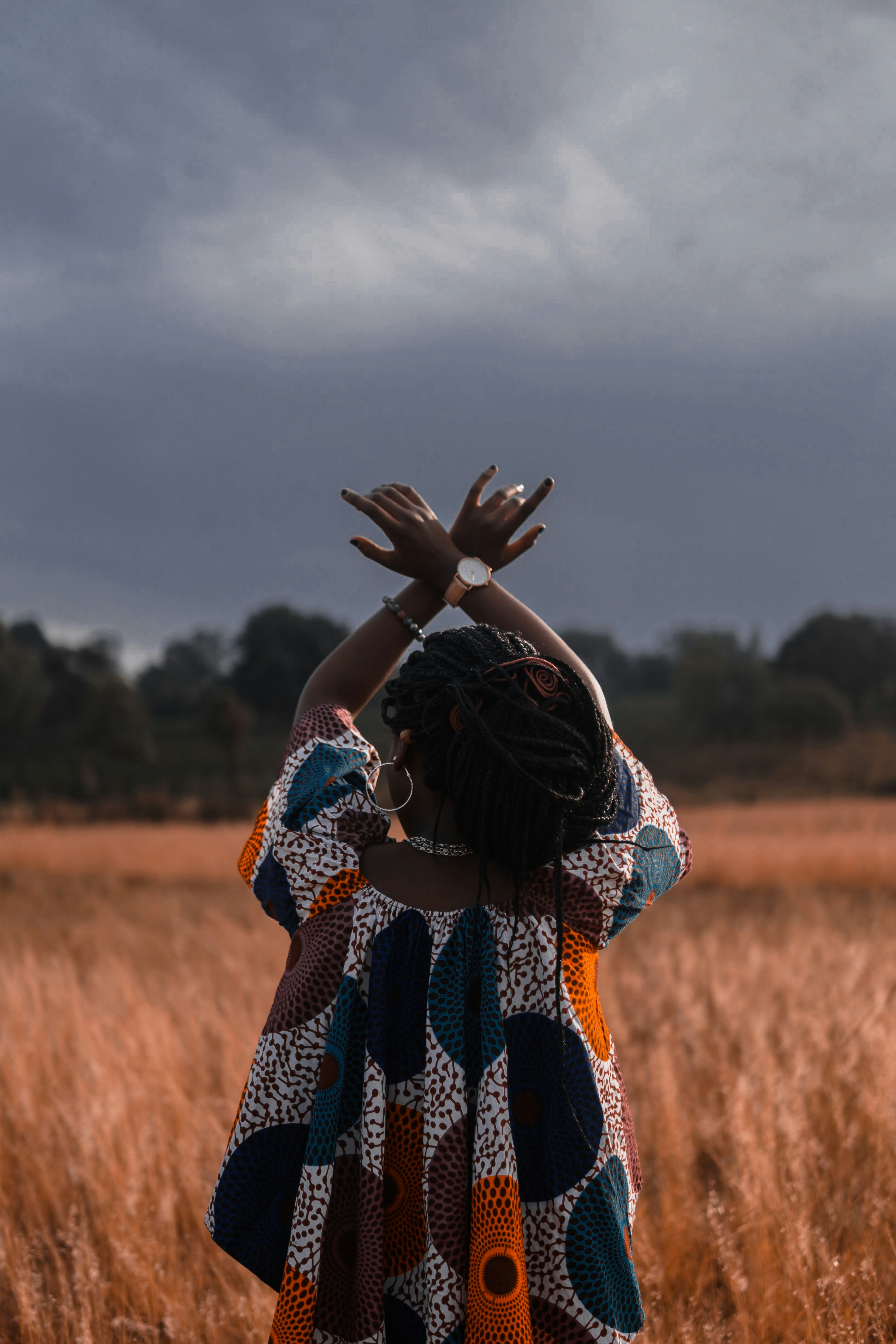In this piece, anti-trafficking advocate and survivor leader Chylian Ify Azuh discusses the importance of ensuring survivors’ safety and dignity, calling for a more humane and sensitive approach to their care and reintegration.
✍🏾 Chylian Ify Azuh 📷 Photo by Kayle Kaupanger on Unsplash
A recent viral video featuring female migrants, including unaccompanied minors from Nigeria, has sparked reactions on social media. While the intention behind the video was to raise awareness about the critical issue of human trafficking, the method raises concerns about the prioritisation of survivors’ safety and well-being.
The video, which includes interviews with victims and first responders profiling victims, has publicly shared personal information, such as names and states of origin. This approach risks re-traumatising the survivors, compromising their privacy and exploiting them.
When the video surfaced on the Internet, the majority of social media reactions failed to empathise with the survivors, instead perpetuating harmful misconceptions and stigma. Many have viewed the survivors as willing participants driven by financial motivations rather than recognising them as victims of a heinous crime.

This article is not intended to sow discord among survivors, media professionals, first responders, and allies but rather serves as a clarion call to refocus our collective attention on the paramount importance of prioritising victim-centred support and dismantling harmful practices that have been perpetuated and legitimised for far too long. By acknowledging and addressing these issues, we can work collaboratively to create a more compassionate and effective support ecosystem for those affected by trauma.
As someone who has witnessed the devastating effects of human trafficking firsthand, I firmly believe that approaching every survivor with compassion, empathy, grace, and kindness is crucial. This empathetic approach is essential to establishing trust, fostering a safe environment, and empowering survivors to reclaim their lives and stories.
By doing so, we can give survivors the autonomy they deserve, allowing them to make informed decisions and take control of their lives. Empathy is the foundation upon which survivors can rebuild and heal, and it’s our responsibility to provide a supportive and non-judgmental space for them to do so.
Personally, as a survivor of familial trafficking, I struggled to establish trust with those who were supposed to help me. Having been exploited by people I trusted, I wondered why strangers, simply doing their jobs, would genuinely care about my well-being. I’m not alone in this sentiment; many survivors share similar doubts.
As survivors transition from slavery to a new phase of life, they rely heavily on first responders for guidance. Therefore, first responders must possess a deep understanding of the complexities involved in navigating this critical phase.
Personally, as a survivor of familial trafficking, I struggled to establish trust with those who were supposed to help me. Having been exploited by people I trusted, I wondered why strangers, simply doing their jobs, would genuinely care about my well-being. I’m not alone in this sentiment; many survivors share similar doubts.
First responders must recognise and address these trust issues to effectively support survivors. They must be equipped to navigate the intricate emotional landscape of those who have been traumatised. By doing so, they can establish a foundation for trust, empowerment, and, ultimately, healing.

I am the founder of the Female Returned Migrants Network (FREMNET NIGERIA), a non-profit dedicated to supporting survivors of human trafficking and gender-based violence. With over six years of experience in the field, I have witnessed firsthand the devastating impact of exploitation on women’s lives.
My own experience as a survivor of familial trafficking has fueled my passion for advocacy and driven me to create a safe space for women to heal and reclaim their lives. FREMNET is a survivor-led organisation with over 300 members.
The organisation was created to respond to this pressing need, creating a safe and supportive space where survivors can find solace, solidarity, and practical assistance. Our approach provides ongoing assistance with information, psychosocial support, capacity-building training, and mentorships that inspire/inform self-care, protection, confidence, mental health support, and progress in life and career.
My own experience as a survivor of familial trafficking has fueled my passion for advocacy and driven me to create a safe space for women to heal and reclaim their lives. FREMNET is a survivor-led organisation with over 300 members.
Through my advocacy work, I have identified a profound knowledge gap regarding the complexities of human trafficking and the vital role individuals play in combating it. Specifically, there is a lack of knowledge surrounding the imperative of a victim-centred approach, which prioritises the identification, protection, and empowerment of victims while acknowledging their agency and autonomy. An approach that recognises how every victim’s needs and experiences should be paramount in every intervention- yet it is often overlooked or marginalised.
Bridging this knowledge gap is crucial to developing effective counter-trafficking strategies prioritising victims’ well-being and dignity. Knowledge is important for everyone working in this sector; of course, the absence of knowledge opens unpleasant situations.
Unfortunately, some individuals, including those in leadership positions within the sector, often lack a commitment to pursuing knowledge and best practices. This oversight can perpetuate inadequate support and treatment for victims, implying that they don’t deserve better. Addressing this disparity is crucial by promoting education, awareness, and a culture of empathy. By doing so, we can work collectively towards providing the dignity, care, and support that all survivors and victims deserve.

What could have been done better?
As a survivor, I know that one of the most important things I want is control over my own story. I want to share it when I feel comfortable or when I see its relevance. Unfortunately, the young ladies in the story above and many other survivors were stripped of that autonomy and agency.
They were not given control over the situation when their story was told without consent. The first responders controlled the narrative and handed the power over to social media users and media agencies. The ladies were not ready to talk on camera, but they had no say in the matter. They didn’t know how their story would be presented.
What if we started by helping them understand their situation and keeping them away from the camera? What if we helped them reclaim the power taken from them by the trafficker and empowered them to own their story and control the narrative? As an organisation, your priority should be building trust with survivors. Ensure that they feel safe, respected, and empathised with your interventions. This is crucial in helping them heal and regain control over their lives.
As a survivor, I know that one of the most important things I want is control over my own story. I want to share it when I feel comfortable or when I see its relevance. Unfortunately, the young ladies in the story above and many other survivors were stripped of that autonomy and agency.
When discussing this topic, it’s essential to approach it with sensitivity and remember that these young girls are victims of a crime, not just examples for awareness campaigns. A negative consequence of the viral video was the rapid exposure of survivors to stigmatisation, leading to shaming, blaming, and unsolicited opinions.
The online discourse overlooked a crucial aspect: the underlying factors that led to their situation. Instead of understanding the complexities of human trafficking, many people judged the girls as greedy and seeking quick wealth.
We must consider the underlying reasons behind young women’s and girls’ decisions rather than just sharing opinions. While poverty and inequality are significant factors, we must also acknowledge the pressure families can put on young women and girls to improve their circumstances. This pressure can lead them to seek drastic solutions, hoping to escape their desperate situation and support their loved ones.

Understanding the complexity of the issue can help us have more thoughtful conversations. Ensuring that the authentic narrative is shared is crucial in raising awareness about stigmatization and reducing victim shaming and blaming. This approach prioritises sensitivity and ethics.
When cases like this emerge, our primary consideration should be accountability, a collective responsibility within the sector. Notably, the recent incident highlighted a concerning trend where organisations and individuals hastily capitalised on the narrative without prioritising the protection and well-being of the survivors. This oversight shows a need for a more thoughtful and informed approach.
Also, as mentioned before, knowledge is a crucial step towards effecting meaningful change, and continuous learning should be a paramount priority within the sector. Regular training and education programs can equip stakeholders with the necessary expertise to provide optimal support for survivors. Establishing a dedicated platform for educating professionals in the anti-trafficking sector could facilitate a more comprehensive and supportive ecosystem for those affected.
As it is yours, it is my responsibility to protect and empower survivors through ethical and responsible storytelling. We also need to foster a culture of accountability, education, and collaboration and work towards a more effective and survivor-centred approach in combating human trafficking.
I have made progress in the sector because I can control most of what is said about me. I understand that my story can empower other survivors and help them see their experiences differently. Because of that, I have controlled what goes on my social media and how our stories are told. If stigmatisation can ruin someone’s chances to grow, why would I create a story that reduces our chances of staying in control and empowered?
As it is yours, it is my responsibility to protect and empower survivors through ethical and responsible storytelling. We also need to foster a culture of accountability, education, and collaboration and work towards a more effective and survivor-centred approach in combating human trafficking.
Chylian Ify Azuh is a passionate anti-trafficking advocate and survivor leader, dedicating her life to empowering female survivors of human trafficking in Nigeria. Through her organisation, the Female Returned Migrants Network,(FREMNET NIGERIA) she provides resources for healing, economic growth, and personal/professional development. Chylian also raises awareness for trafficking prevention and advocates for ending discrimination and violence against women and girls, aligning with the UN's Sustainable Development Goal 5. With a strong survivor-centred approach, she contributes to national programs and working groups on migration management and reintegration. Her background in architecture and training in migration reporting, psychosocial support, and trauma healing inform her work.Recognised for her impact, Chylian received the 2022 Peak Unstoppable Humans of Change Award and the 2023 NVA Awards.



